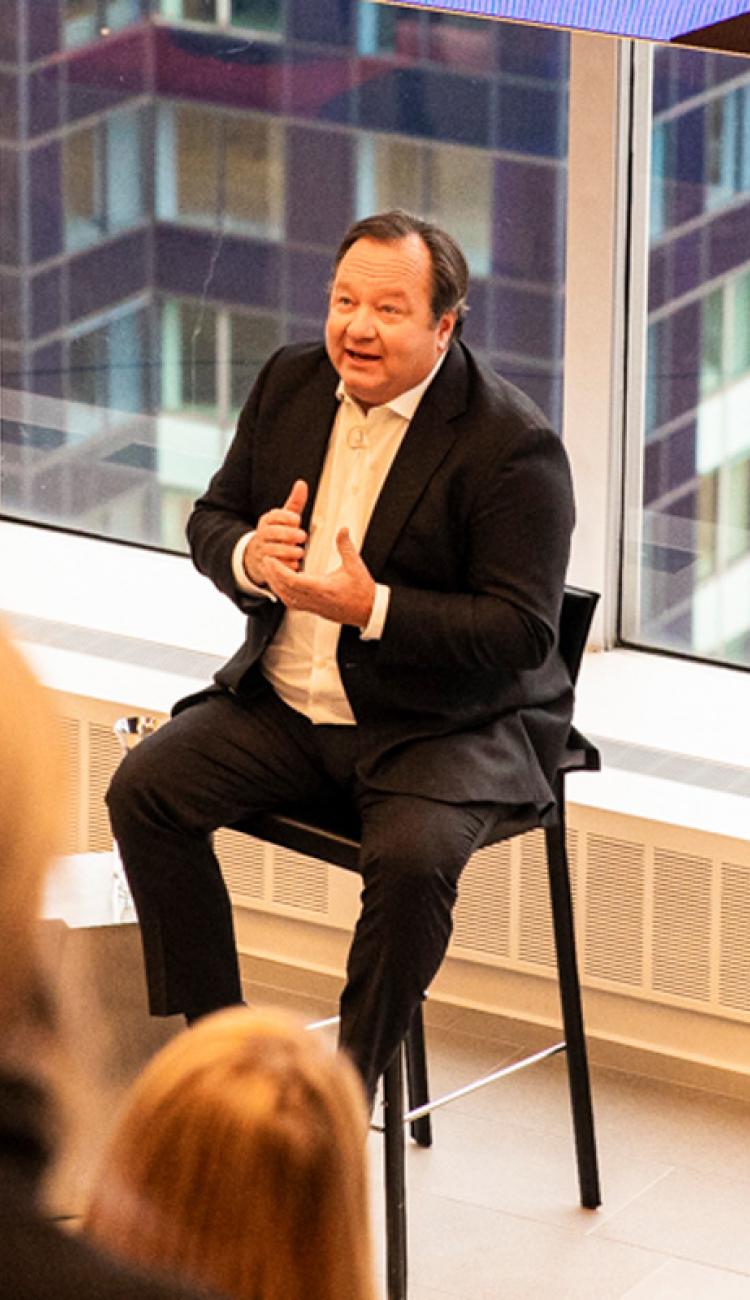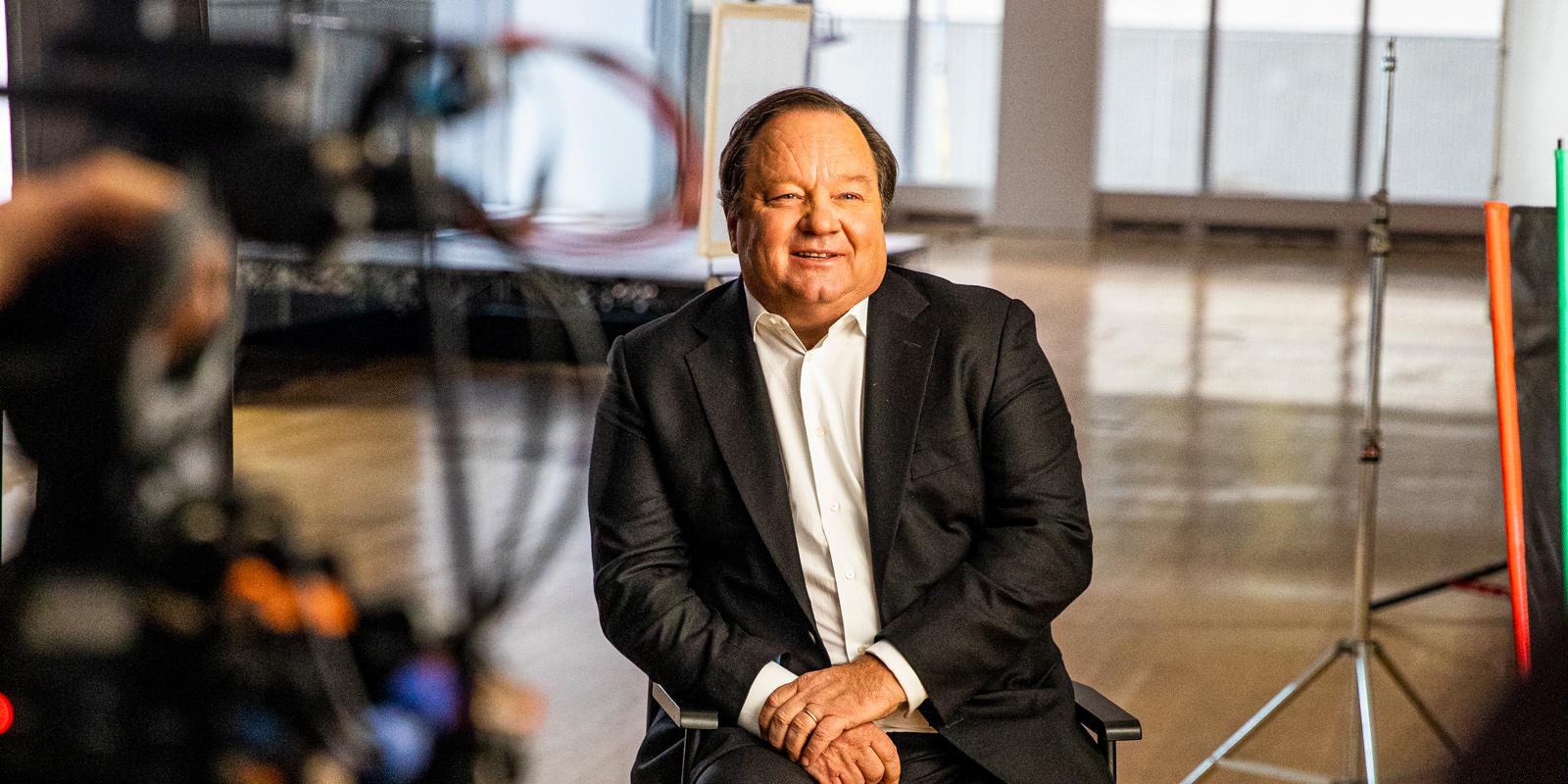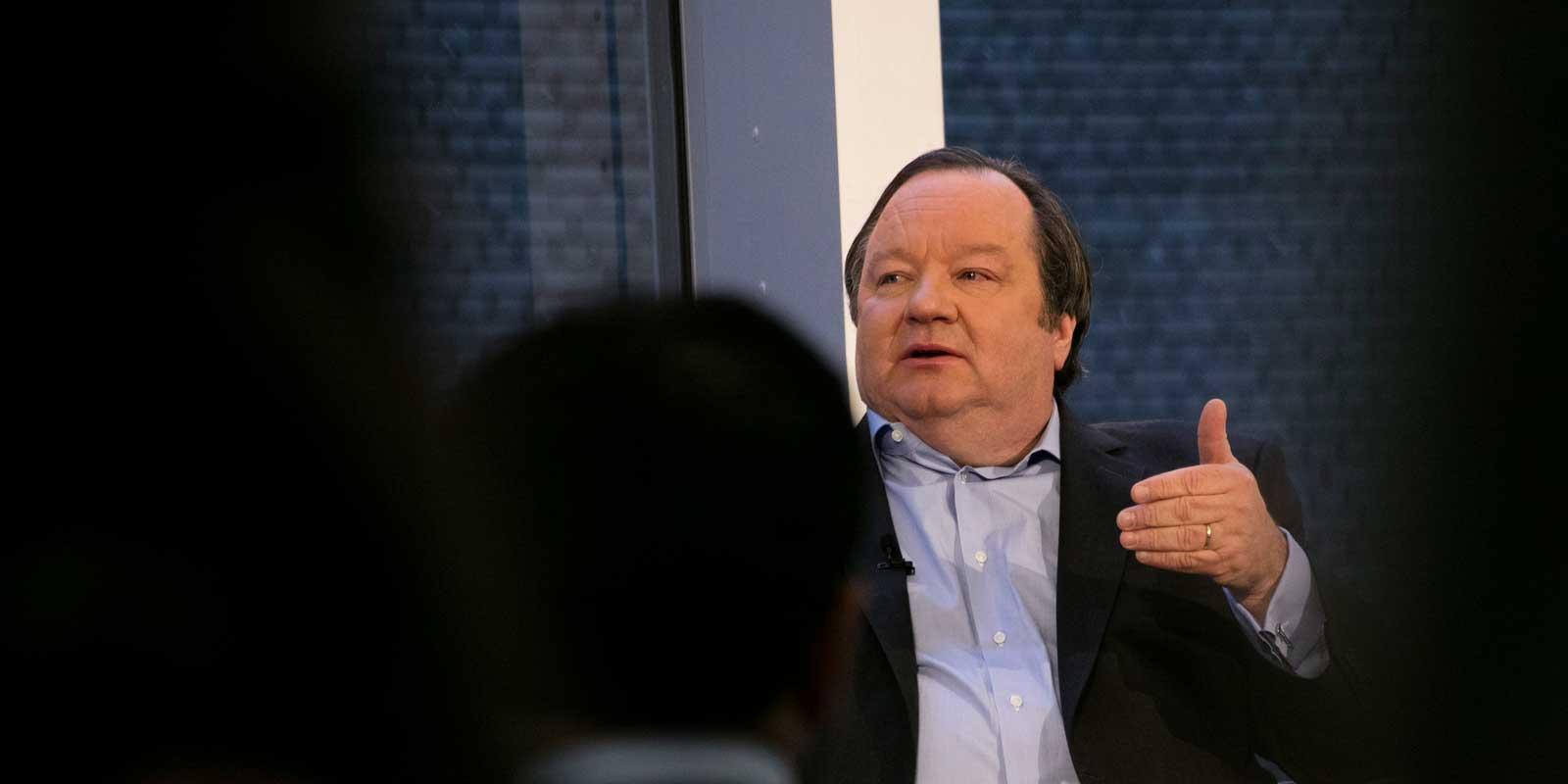Mar 06, 2020
“We believe in maximizing the value of our content asset,” said Bakish during the Morgan Stanley Technology, Media & Telecom Conference.
“I think [the market] is missing the extraordinary value of this company,” said ViacomCBS CEO and President Bob Bakish near the start of a question and answer session at Morgan Stanley’s Technology, Media & Telecom Conference on Wednesday.
He followed up with several proof points. For one, he highlighted ViacomCBS’ core strength in content, both as a producer and as the owner of a content library that it’s committed to monetizing. ViacomCBS is also “the leader on linear television in every single demographic” in the U.S. said Bakish, noting the company’s advertising position. Its streaming and digital video footprint spans sports, live, and local across all consumer price points—including free as its Pluto TV platform is a market leader with more than 22 million monthly active users. He also said the company is undervalued, noting 2020 OIBDA and free cash flow guidance.
“I hope investors understand how focused we are on free cash flow generation at ViacomCBS,” said Bakish, projecting that the company will generate between $1.8 and $2 billion in adjusted free cash flow—a performance metric many analysts focus on—this year.
To that end, in a headline-making move, Bakish announced that ViacomCBS is in the early stages of exploring the sale of Simon & Schuster that it will look to complete once the market stabilizes. “It’s not just about operating performance. There are significant non-core assets in this company that we’re committed to unlocking to add to the shareholder value equation,” said Bakish. He clarified that Simon & Schuster “is not a core asset” of the combined company since “it doesn’t have significant connectivity to our broader business.” The publishing division added $814 million in revenue—or 3% of consolidated revenues—to ViacomCBS in fiscal 2019.
"I hope investors understand how focused we are on free cash flow generation at ViacomCBS"
Bakish also mentioned that there’s a set of “blue-chip buyers” who are interested in purchasing Black Rock, the midtown Manhattan building. The sale will produce “material cash” in 2020.
In a nod to the efficiencies created in the merger between Viacom and CBS, Bakish pointed to the $750 million in merger-related cost savings that’s expected to be realized over the next three years. As a unified company, ViacomCBS will re-prioritize how it spends money on production, decreasing the growth rate of cash spent on content—moving from the mid-teens growth rate of 2019 to mid-single-digits in 2020. And looking to 2021, Bakish said there will be a $500 million free cash flow benefit thanks to its “content strategy evolution and working capital work” as well the benefit of having rights to air Super Bowl LV.
Revenue from cable affiliates, subscription streaming, and domestic advertising is also projected to increase.
As a preview of upcoming advertising upfront negotiations, he said the company will benefit from pricing that reflects the unified company. The further monetization of ViacomCBS’ digital inventory and strong political spending will also give its ad business a boost. The company’s advanced advertising offerings, which come from its Advanced Marketing Solutions (AMS) division, will expand thanks to the addition of digital CBS inventory.
“Maximizing the Value of Our Content Assets”
Bakish was resolute that ViacomCBS’ core value hinges on content. In an era where media competitors are keeping their programming behind proprietary streaming platforms, ViacomCBS will continue to produce content for its own platforms as well as those operated by third parties. In other words, Bakish believes the value of its IP transcends its own platforms.
Consider what ViacomCBS has done with SpongeBob SquarePants. The television show appears on linear cable and streaming platforms. Paramount Pictures’ The SpongeBob Movie: Sponge on the Run will hit theaters in May. Nickelodeon is also slated to produce two SpongeBob spinoffs for Netflix—which ViacomCBS can air on its own channels once Netflix’s rights expire. The company also makes money from SpongeBob consumer products and recreation. The net effect: the value of SpongeBob will only increase as it reaches more and more people across multiple platforms.
“We’re convinced that an O&O and third-party strategy is absolutely right for ViacomCBS. We believe in maximizing the value of our content asset,” said Bakish. “That’s what we’re executing against and that is where you’ll see us deliver value in 2020 and beyond.” This strategy gives ViacomCBS an advantage by enabling it to reach the largest addressable audience, grow the footprint of its brands and IP, and increase its potential revenue.
"We’re convinced that an O&O and third-party strategy is absolutely right for ViacomCBS. We believe in maximizing the value of our content asset."
The strategy also ensures that the company can continue to drive revenues through three primary lines of business: advertising and distribution on linear cable, streaming and digital video, and content licensing. Bakish said that he expects third-party studio production to generate $1.3 billion this year. Streaming and digital video generated $1.6 billion in 2019, and is expected to grow between 35% and 40% this year.
To achieve the revenue growth projections in streaming, Bakish said that he anticipates Pluto TV’s subscribers to increase more than 35% this year to 30 million monthly active users. Subscribers to its pay platforms, which include CBS All Access and Showtime, are expected to climb more than 40% to 16 million this year.
Last month, Bakish announced that it will evolve CBS All Access into a service that includes content from ViacomCBS’ brand portfolio. This move means ViacomCBS will have a differentiated product in the market that gives consumers the ability to stream local and national news, sports, films, reality, and kids programming.
Sports will continue to be a “fundamental” part of ViacomCBS. Thanks to its reach across linear and OTT platforms, it can give partners a unique distribution potential. He pointed to a deal with UEFA, which will put some matches on linear and an expanded set of matches on CBS All Access. “We were differentiated in our bid for UEFA because of that combination. They liked the visibility of linear, and we understood [UEFA] as being a key driver for over-the-top.”
In terms of the ongoing negotiations with the NFL, Bakish said that “the NFL clearly has value to CBS, and ViacomCBS has value to the NFL.” He mentioned that the company is known for having the highest quality of production. ViacomCBS can also help with the NFL’s “long term brand development” by bringing in new consumers thanks to its reach across young and international audiences. The company announced earlier this week that Tony Romo will keep calling football games for CBS, a move that Bakish says allows ViacomCBS to “credibly claim we have the best announcing team in the business.”
A recording of the full session is available on ir.viacbs.com.




